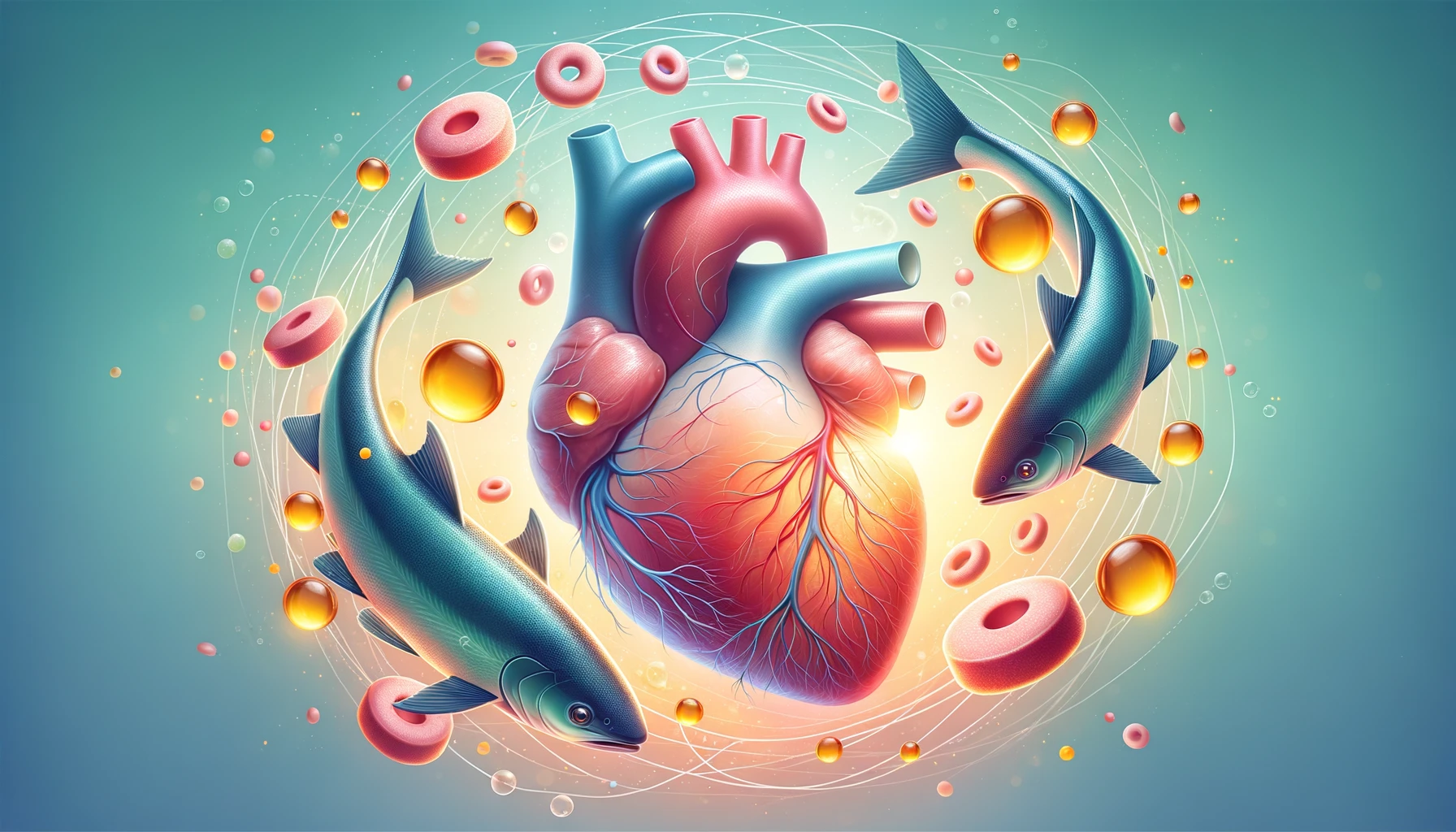When it comes to cardiovascular health, I believe in the power of food. By making conscious choices and incorporating heart-healthy foods into my diet, I can take control of my well-being and reduce the risk of heart disease. These foods not only nourish my body but also provide me with nutritional benefits that fuel my heart and keep it strong.
Leafy Green Vegetables: Nourishing Your Heart
When it comes to nourishing your heart, leafy green vegetables are a powerhouse of nutrients. The vibrant greens like spinach, kale, and collard greens are not only delicious but also offer numerous health benefits. These vegetables are rich in vitamin K, which plays a crucial role in protecting your arteries and promoting proper blood clotting.
Moreover, leafy greens also contain dietary nitrates, which have been shown to reduce blood pressure and improve arterial function. Including more leafy greens in your diet can contribute to a lower risk of heart disease, making them an essential addition to your heart-healthy eating plan.
So, what are some easy ways to incorporate leafy green vegetables into your meals? Consider adding a handful of spinach to your morning smoothie, sautéing kale as a side dish for dinner, or creating a fresh and vibrant salad with a mix of different greens. With their amazing taste and impressive nutritional profile, leafy green vegetables are a simple yet effective way to nourish your heart.

The Benefits of Leafy Green Vegetables
Leafy green vegetables offer a range of benefits for your heart health. Here are a few key reasons to include them in your diet:
- High in vitamin K: Leafy greens provide a rich source of vitamin K, which helps protect your arteries and supports proper blood clotting.
- Dietary nitrates for blood pressure: The dietary nitrates found in leafy greens have been shown to reduce blood pressure and improve arterial function.
- Low in calories, high in nutrition: Leafy greens are low in calories but packed with essential nutrients like vitamins A, C, and E, as well as fiber and antioxidants.
- Heart disease prevention: Research suggests that increasing your intake of leafy greens is associated with a lower risk of heart disease.
Embrace the power of leafy green vegetables and give your heart the nourishment it deserves. By incorporating these nutrient-rich greens into your daily meals, you can take a significant step towards maintaining a healthy heart.
| Leafy Green Vegetables | Vitamin K (mcg) | Dietary Nitrates (mg) |
|---|---|---|
| Spinach (1 cup) | 145 | 837 |
| Kale (1 cup) | 547 | 1074 |
| Collard Greens (1 cup) | 440 | 1023 |
Whole Grains: Protecting Your Heart
When it comes to heart health, incorporating whole grains into your diet is a wise choice. Whole grains such as whole wheat, brown rice, oats, and quinoa contain all three important parts of the grain, including the bran, germ, and endosperm. This means they are rich in fiber and nutrients, offering numerous benefits for your cardiovascular system.
Fiber is a key component of whole grains, and it plays a crucial role in heart health. Soluble fiber found in whole grains can help lower cholesterol levels by reducing the absorption of LDL cholesterol (the “bad” cholesterol) in the bloodstream. By keeping cholesterol levels in check, whole grains contribute to a healthier heart and a decreased risk of heart disease.
In addition to promoting healthy cholesterol levels, consuming whole grains has also been linked to improved blood pressure control. The high fiber content of whole grains aids in maintaining healthy blood pressure levels, which is important for preventing heart disease. Research suggests that a diet rich in whole grains can help reduce systolic blood pressure, the top number in a blood pressure reading that indicates the pressure in your arteries when your heart beats.
The Benefits of Whole Grains:
- Lower cholesterol levels
- Improved blood pressure control
- Reduced risk of heart disease
By choosing whole grains over refined grains, you can make a positive impact on your heart health. Whole grains are an excellent source of nutrition and provide more fiber, vitamins, and minerals compared to their refined counterparts. Incorporating whole grains into your meals can be as simple as swapping white bread for whole wheat bread, choosing brown rice instead of white rice, or enjoying a bowl of oatmeal for breakfast.
| Whole Grains | Refined Grains | |
|---|---|---|
| Fiber Content | High | Low |
| Nutrient Content | Rich in vitamins and minerals | Less nutritious |
| Cholesterol-lowering Effect | Yes | No |
Make whole grains a staple in your diet and enjoy the benefits they offer. Whether it’s whole grain bread, pasta, or cereal, incorporating these heart-healthy foods into your meals can help protect your heart and support overall cardiovascular wellness.
Berries: Antioxidant Powerhouses for Your Heart
Berries are not only delicious, but they also offer incredible health benefits, especially when it comes to the heart. These colorful fruits, including strawberries, blueberries, blackberries, and raspberries, are packed with antioxidants that play a vital role in promoting heart health.
Antioxidants, such as anthocyanins found in berries, protect against oxidative stress and inflammation, both of which are known contributors to heart disease. These powerful compounds help reduce the risk factors associated with cardiovascular problems, including high blood pressure, high cholesterol levels, and arterial dysfunction.
Studies have shown that regularly consuming berries can significantly decrease the risk of heart disease and improve vascular function. The high antioxidant content in berries also promotes overall wellness and helps maintain a healthy weight. Including berries in your diet is a simple and delicious way to boost your heart health and protect against the development of heart-related conditions.

The Nutritional Benefits of Berries
Here is a breakdown of the key nutrients found in berries:
- Antioxidants: Berries are packed with antioxidants, including anthocyanins, flavonols, and vitamin C, which protect against cellular damage and inflammation.
- Fiber: Berries are a great source of dietary fiber, which aids in digestion, lowers cholesterol levels, and helps control blood sugar levels.
- Vitamins and Minerals: Berries contain essential vitamins and minerals, such as vitamin K, manganese, and potassium, which support various bodily functions and contribute to overall health.
| Berry | Antioxidant Content | Vitamin C (per 100g) | Fiber (per 100g) |
|---|---|---|---|
| Strawberries | High | 58.8mg | 2g |
| Blueberries | High | 9.7mg | 2.4g |
| Blackberries | High | 21mg | 5.3g |
| Raspberries | High | 26.2mg | 6.5g |
“I love incorporating a variety of berries into my diet. They not only add a burst of flavor to my meals but also provide an abundance of antioxidants that support my heart health. Plus, they make the perfect snack!” – Jane, berry enthusiast
Avocados: Heart-Healthy Monounsaturated Fats
When it comes to promoting heart health, avocados are a true powerhouse. These creamy fruits are rich in heart-healthy monounsaturated fats, which have been shown to have numerous benefits for cardiovascular health. Consuming avocados regularly can help lower cholesterol levels and reduce the risk of heart disease.
One of the key advantages of avocados is their ability to positively impact cholesterol levels. The monounsaturated fats found in avocados can raise levels of high-density lipoprotein (HDL) cholesterol, often referred to as “good” cholesterol, while lowering levels of low-density lipoprotein (LDL) cholesterol, or “bad” cholesterol. This balance is crucial for maintaining heart health and reducing the risk of artery blockages.
In addition to their impact on cholesterol, avocados have also been linked to lower blood pressure levels. The high potassium content of avocados can help regulate blood pressure by counteracting the effects of sodium. Potassium is known for its ability to relax blood vessel walls, thereby reducing the strain on the cardiovascular system and promoting healthy blood pressure levels.
So, how can you incorporate more avocados into your diet? Try adding sliced avocados to salads, spreading mashed avocado on toast, or using avocado as a substitute for butter or mayonnaise in recipes. With their creamy texture and mild flavor, avocados can easily be incorporated into a variety of dishes, making it simple to enjoy their heart-healthy benefits on a regular basis.
Table: Health Benefits of Avocados
| Health Benefit | Description |
|---|---|
| Lower Cholesterol | Avocados are rich in monounsaturated fats that can raise HDL cholesterol and lower LDL cholesterol. |
| Reduce Blood Pressure | The potassium content in avocados helps regulate blood pressure levels and promote cardiovascular health. |
| Heart Disease Prevention | By improving cholesterol levels and blood pressure, avocados can help reduce the risk of heart disease. |
Incorporating avocados into a balanced diet is a delicious and nutritious way to support heart health. By enjoying the benefits of their monounsaturated fats, you can nourish your body and love your heart.
Fatty Fish and Fish Oil: Omega-3 Powerhouses
Fatty fish, such as salmon, mackerel, sardines, and tuna, are packed with omega-3 fatty acids, which are essential for heart health. These omega-3 fatty acids have been shown to have numerous benefits for cardiovascular health, making fatty fish an important addition to a heart-healthy diet.
The omega-3 fatty acids found in fatty fish and fish oil have been shown to reduce various risk factors for heart disease. Studies have demonstrated that consuming omega-3 fatty acids can lower total cholesterol levels, blood triglycerides, fasting blood sugar, and systolic blood pressure. This is particularly beneficial for individuals with high levels of these risk factors.
Not only do omega-3 fatty acids help reduce risk factors for heart disease, but they also have a protective effect against cardiac events. Research has shown that consuming fish oil supplements, which are rich in omega-3 fatty acids, can lead to lower rates of mortality, cardiac death, and stroke. The anti-inflammatory properties of these fatty acids play a significant role in these cardiovascular benefits.

The Benefits of Omega-3 Fatty Acids:
- Reduces total cholesterol levels
- Lowers blood triglycerides
- Improves fasting blood sugar levels
- Reduces systolic blood pressure
- Protects against cardiac events
Incorporating fatty fish into your diet at least twice a week can provide you with a good amount of omega-3 fatty acids. If you’re not a fan of fish or have dietary restrictions, fish oil supplements are an alternative option to consider. However, it’s always best to consult with your doctor before starting any new supplements.
| Fatty Fish | Omega-3 Fatty Acid Content (per 100g) |
|---|---|
| Salmon | 2.3 grams |
| Mackerel | 2.6 grams |
| Sardines | 1.8 grams |
| Tuna | 0.9 grams |
Conclusion
As I conclude this article on eating for heart health, I want to emphasize the importance of adopting heart-healthy habits to prevent disease and promote overall wellness. A balanced diet plays a crucial role in maintaining a healthy heart, and incorporating specific foods can have significant benefits for cardiovascular health.
By including heart-healthy foods like leafy green vegetables, whole grains, berries, avocados, fatty fish, walnuts, beans, dark chocolate, tomatoes, and almonds in your diet, you can provide your body with the necessary nutrients and antioxidants to support a healthy heart. These foods have been shown to reduce the risk factors associated with heart disease and promote proper blood pressure and arterial function.
However, a heart-healthy diet is just one part of the equation. It is equally important to establish other heart-healthy habits, such as engaging in regular exercise, avoiding smoking, and controlling alcohol intake. By making small changes to your diet and lifestyle, you can significantly improve your heart health and reduce the risk of developing cardiovascular disease.
In conclusion, let us remember that prevention is key when it comes to heart health. By prioritizing a balanced and nutritious diet, along with incorporating heart-healthy habits into our daily lives, we can take proactive steps towards promoting our cardiovascular well-being. Let’s show some love to our hearts and embrace a heart-healthy lifestyle for a healthier and happier future.
FAQ
What are the best foods for heart health?
Some of the best foods for heart health include leafy green vegetables, whole grains, berries, avocados, fatty fish, walnuts, beans, dark chocolate, tomatoes, and almonds.
Why are leafy green vegetables good for the heart?
Leafy green vegetables are packed with vitamins, minerals, and antioxidants. They are particularly rich in vitamin K, which protects the arteries and promotes proper blood clotting. They also contain dietary nitrates, which can reduce blood pressure and improve arterial function.
How do whole grains protect the heart?
Whole grains, such as whole wheat, brown rice, oats, and quinoa, contain all three important parts of the grain and are rich in fiber. Consuming whole grains has been linked to lower cholesterol levels and systolic blood pressure, as well as a reduced risk of heart disease.
What makes berries good for heart health?
Berries are packed with antioxidants that play a vital role in heart health. Their high content of anthocyanins helps protect against oxidative stress and inflammation, which are contributors to heart disease. Consuming berries regularly has been associated with a decreased risk of heart disease and improved vascular function.
How do avocados promote heart health?
Avocados are a great source of heart-healthy monounsaturated fats, which have been linked to decreased cholesterol levels and a lower risk of heart disease. Consuming avocados regularly has been associated with a reduced risk of cardiovascular disease and improved vascular function. They are also rich in potassium, which can help lower blood pressure.
Why are fatty fish and fish oil beneficial for the heart?
Fatty fish, like salmon, mackerel, sardines, and tuna, are high in omega-3 fatty acids, which have numerous heart-health benefits. Omega-3 fatty acids can reduce total cholesterol, blood triglycerides, fasting blood sugar, and systolic blood pressure. Consuming fish oil supplements has also been associated with reduced rates of mortality, cardiac death, and stroke.
What other heart-healthy habits should I adopt?
In addition to a nutritious diet, it’s important to engage in regular exercise, avoid smoking, and control alcohol intake. Making small changes to your diet and lifestyle can have a big impact on your heart health.
